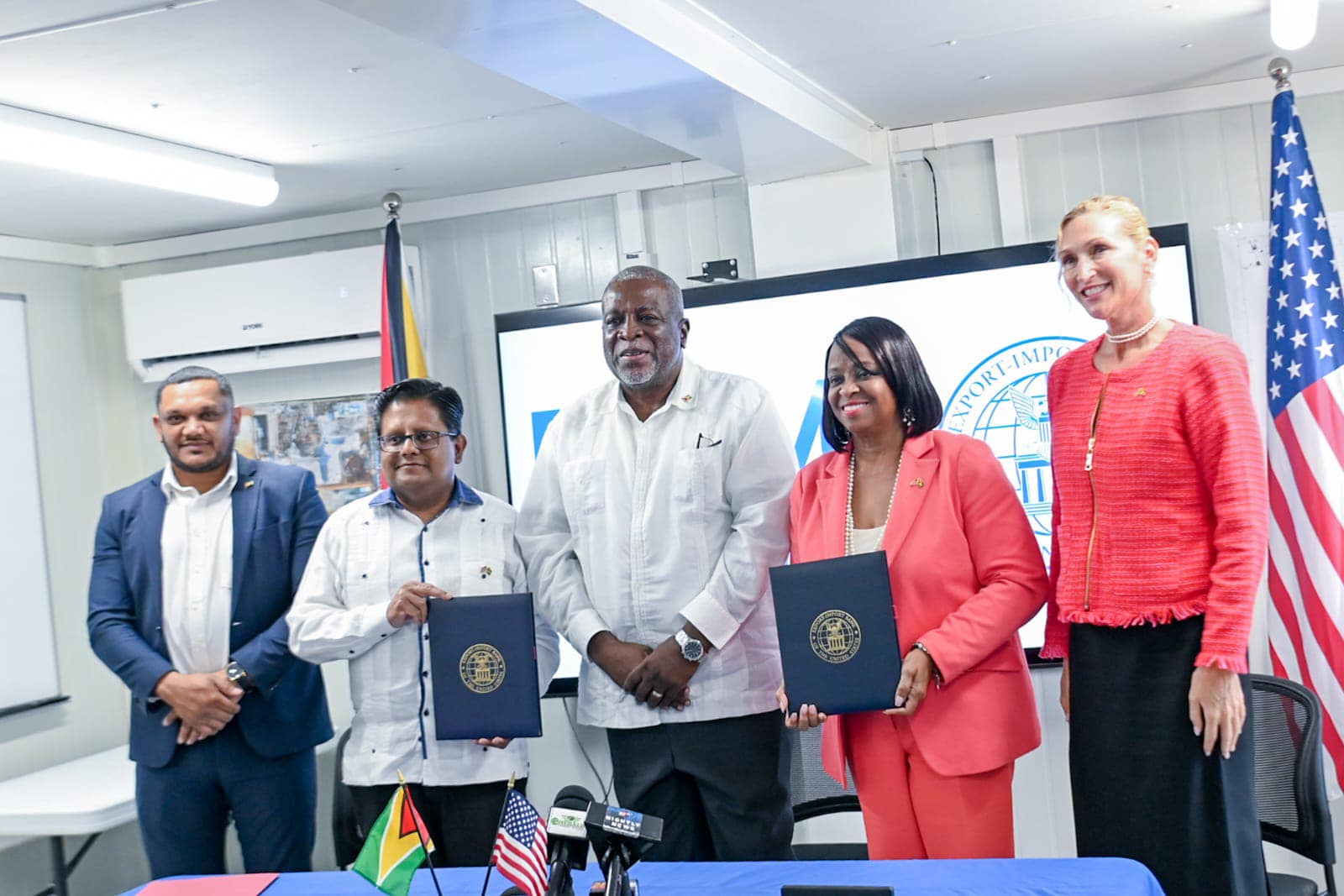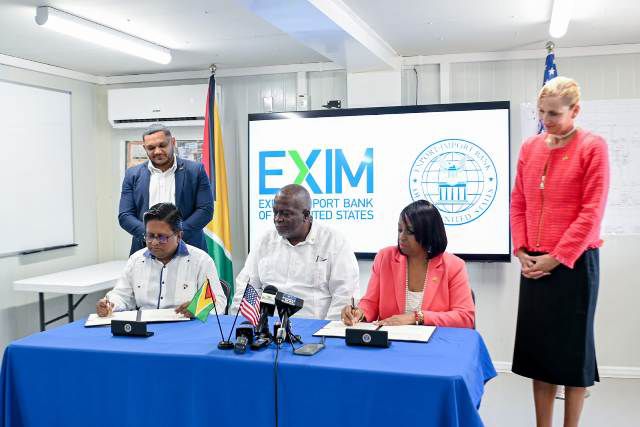





On January 12, 2025, the Government of Guyana signed a significant loan agreement with the Export-Import Bank of the United States (EXIM) for $526 million to support a transformative gas-to-energy project. This financing will facilitate the construction of a natural gas separation plant and a 300 MW combined cycle gas turbine power plant in Wales, West Bank Demerara. Reta Jo Lewis, President of EXIM Bank, stated that the project aligns with the bank's goals of enhancing energy security and sustainability. Prime Minister Mark Phillips emphasized the project's potential to double the country's electricity capacity and modernize its energy infrastructure. [4ea75df1]
The project is expected to significantly reduce electricity costs by up to 50%, contributing to economic diversification in Guyana. Minister of Finance Dr. Ashni Singh noted that the initiative would not only lower energy expenses but also create job opportunities, with 85% of the workforce being Guyanese. The project is a joint venture involving Lindsayca and CH4 Systems, which are currently addressing claims totaling nearly $50 million related to soil stabilization issues at the construction site. These claims have brought the total disputes related to the project to just under $100 million, with a dispute resolution meeting scheduled for next month. [0eba75d4][da9a6d03]
In a parallel development, on January 17, 2025, the Export-Import Bank of the United States (EXIM) signed a memorandum of understanding (MoU) with the Nigerian Export-Import Bank (NEXIM). This MoU aims to enhance trade ties between the two countries, focusing on sectors such as clean energy, aviation, and infrastructure. Reta Jo Lewis represented EXIM, while NEXIM was represented by Managing Director Abba Bello. Nigeria is recognized as the second largest U.S. export destination in Sub-Saharan Africa, and EXIM has approved approximately $4 billion in support of U.S. exports to the region over the past three years. [2767c04a]
As the Guyana project progresses, it aims to utilize natural gas sourced from offshore oil operations, which is projected to reduce carbon emissions by over 460,000 tonnes annually. The EXIM Bank's support is crucial for this initiative, which is part of a broader strategy to enhance energy infrastructure in Guyana. Since 2021, the country has attracted over $15 billion in private sector investments, reflecting a commitment to sustainable energy development and strengthening U.S.-Guyana relations. [204180d7][c2fc8299]